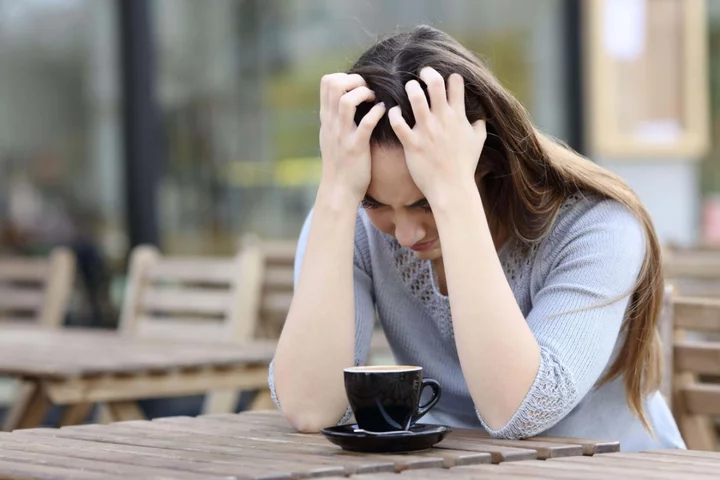
World Mental Health Day: 5 ways to beat anxiety and change your life
Anxiety is something that touches most of us, to a greater or lesser extent. Although it may just be a temporary blip for some people, for many, anxiety is a diagnosed condition that blights their lives. Indeed, Mental Health UK estimates more than one in 10 people in the UK are living with an anxiety disorder – that’s over eight million of us. And World Mental Health Day (October 10) is a chance to address the topic, agrees clinical psychologist Dr Kirren Schnack – author of the new book Ten Times Calmer: Beat Anxiety And Change Your Life. “It’s a reminder that mental wellbeing is just as important as physical health,” she says, pointing out that anxiety disorders are among the most widespread mental health issues globally. “Clinically, I’ve seen more and more people coming in with anxiety issue. The pandemic has played a significant role in this surge, introducing unprecedented levels of uncertainty, fear, and social isolation. At the same time, global economic instability and job losses have intensified stress and anxiety for many,” Schnack adds. “The widespread use of digital technology and social media has exposed people to a constant stream of alarming news and comparison-driven content that also feeds anxiety.” Schnack explains that anxiety disorders include generalised anxiety disorder (GAD), which causes chronic worry and hinders decision-making; health anxiety, where there’s an excessive preoccupation with diseases and illness; panic disorder, which is marked by sudden overwhelming panic attacks; and social anxiety, which leads to avoidance, isolation and low confidence. “They can blight daily life through physical symptoms, cognitive impairment, social isolation, disrupted routines, and emotional distress,” she says. Schnack suggests these five ways to combat anxiety problems and find calm… 1. Calm your stressed nervous system Anxiety places significant strain on the nervous system, Schnack explains, but there are simple daily practices that can help alleviate this stress. One is focusing on breathing, extending your exhale longer than your inhale. To do this, Schnack says you need to inhale gently through your nose, pause for a few seconds, then exhale slowly and deeply, ensuring an extended exhale. “A longer exhale helps by increasing the activation of the body’s parasympathetic nervous system, which counteracts stress hormones, lowers heart rate, and reduces overall physiological stress,” she says. She suggests around three to five of the breaths are repeated on multiple occasions throughout the day, and stresses that consistency is key. “Recognise that if anxiety has been a longstanding presence, it will take time and patience to restore your nervous system’s sense of safety and stability.” 2. Address anxious thoughts Schnack explains that anxiety often generates anxious thoughts that can seem like undeniable facts that are often dwelled on and reacted to, thus intensifying anxiety. “To break free from this cycle, it’s crucial to consciously confront and process these anxious thoughts,” she says. To do this, write a simple record, noting the date of your anxious prediction, describing what it was, and then, after a specified time like a day or two, return to what you’ve written and confirm whether the prediction was accurate by marking it as ‘yes’ or ‘no’. When the prediction doesn’t materialise, make a note of the actual outcome. Revisit the record, especially during anxious moments, and count the yes or no entries to reflect on your progress. “This practice trains your mind to adopt a broader, less anxious perspective,” explains Schnack. 3. Stop over-focusing on anxiety“People struggling with anxiety often find it challenging to shift their attention away from anxiety symptoms, leading to a persistent preoccupation that can worsen their problems,” says Schnack, who explains that this preoccupation can lead to excessive self-analysis, fixation on physical sensations or repetitive thoughts, and being hypervigilant. To shift your attention away from overwhelming anxiety, Schnack suggests trying this exercise: choose a colour, such as blue, and actively seek out blue objects in your surroundings. Name them out loud, and count them as you move around, possibly describing the item too. “Strive to maintain this focus for a few minutes, switching to different colours if necessary. Again, consistency is crucial, so make an effort to practice this regularly whenever anxiety hijacks your attention,” she advises. 4. Learn to tolerate uncertainty Recognising and addressing uncertainty is vital when dealing with anxiety, Schnack stresses. “You can’t resolve every uncertainty in life – the key lies in enhancing your ability to tolerate uncertainty so you can reduce your anxiety,” she explains. “Being more accepting of the fact that things may not always go as planned or that the future is uncertain can be incredibly liberating.” To help build resilience against uncertainty, Schnack advises people to take a moment to slow down and not immediately engage in reactive behaviour demanded by uncertainty, such as checking, Googling or avoiding things. Instead, she says, note your feelings, observing what uncertainty is doing to your mind and body, and write out an affirmation such as: ‘I’m feeling anxious because I’m uncertain about… My typical response to uncertainty is to engage in… behaviour. I recognise this only worsens my anxiety. My goal is to distance myself from anxiety rather than gravitate towards it. I can sit with the feeling of uncertainty for as long as I can, and build on this time until I get better and better at it.’ 5. Gradually face your fearsConfronting your fears is an effective way to overcome them, observes Schnack, although this can often feel overwhelming. “When you confront your fears, you’re essentially acting in opposition to your anxious thoughts and what anxiety is telling you. This process weakens anxiety’s grip on you, and when the actual outcomes don’t align with your anxious predictions, your mind can naturally adjust its thinking.” She suggests starting with small steps and gradually building up. So, for social anxiety, gradually start by saying a simple sentence or asking a basic closed question, and gradually building up from there. For health anxiety, gradually reduce and eliminate excessive online researching about illness and diseases, starting with small-time durations and then building on that. For panic disorder, gradually spend more time in places you typically avoid, starting with short durations like 30 seconds, then a few minutes, and gradually keep increasing the time. “Remember to repeatedly face your fears to make meaningful progress – it’s not just a one time thing,” adds Schnack. Ten Times Calmer: Beat Anxiety And Change Your Life by Dr Kirren Schnack is published by Bluebird, priced £16.99. Available now. Read More Alternative veg to grow for next season How to spot if your child is struggling with their mental health – and what to do next Does your pillowcase make a difference to your skin and hair health? Sarah Jessica Parker channels Carrie Bradshaw on the red carpet in mismatched shoes Does your pillowcase make a difference to your skin and hair health? As transphobic hate crimes rise by 11% in a year, how to be a better ally
2023-10-10 14:16

Elizabeth Hurley issues reminder to women about getting mammograms as she raises awareness about breast cancer
Elizabeth Hurley has issued a reminder to women about getting mammograms, in honour of her partnership with Estée Lauder’s Breast Cancer Awareness campaign. The model, 58, spoke candidly about mammograms – which are X-rays performed on women’s breasts to screen for cancer – during a recent interview withUs Weekly. While discussing her last 28 years as the ambassador of Estée Lauder’s campaign, she told women that if they feel something “abnormal” when examining their bodies, they shouldn’t hesitate to get it checked by a doctor. “I think the most important thing you can do is familiarise yourself with your breasts because they’re yours and only you know how they feel,” she said. “You should recognise something when it’s abnormal, and you should go to the doctor right away.” Hurley emphasised that annual screenings for breast cancer are not only “vital,” but they should be considered a part of “looking after your health in every way”. She also went on to urge women to be “breast cancer bullies” by continuing to encourage their loved ones to get checked for the disease. “Make sure your friends, your family, your mother, your grandmother, that they’re going for their screenings regularly and urge them to self-check,” she said. “It doesn’t discriminate. It can hit anybody. Some groups are more vulnerable than others.” She also made a reference to one breast cancer that can be difficult to treat, triple-negative breast cancer, which “differs from other types of invasive breast cancer” because “it tends to grow and spread faster, has fewer treatment options, and tends to have a worse prognosis”, as noted by the American Cancer Society. The type of cancer can also be “more common in women younger than age 40, who are Black, or who have a BRCA1 mutation”. “It disproportionately affects Black women,” the Bedazzled star added. “It’s a diverse disease and it needs to be attacked in a diverse way.” According to the American Cancer Society, women between the ages of 45 and 54 “should get mammograms every year”. Meanwhile, women who are 55 and older can either “switch to a mammogram every other year, or they can choose to continue yearly mammograms”. In addition, women between the ages of 40 and 44 “have the option to start screening with a mammogram every year”. The organisation also noted that breast cancer is the most common cancer in women, with estimates of “about 297,790 new cases of invasive breast cancer” being diagnosed in women in the US in 2023. Over the years, Hurley has continued to speak about the importance of getting a mammogram. Last year, she joined Loose Women hosts Kaye Adams, Brenda Edwards, Nadia Sawalha, and Carol McGiffin for a self-examination on live TV. During the segment, she also opened up about losing her own grandmother to the disease, and how her attitudes towards breast cancer have shifted over time. “At that time nobody talked about it. There was no pink ribbon, no Breast Cancer Awareness month,” the Serving Sara star said, adding that when her grandmother first found a lump in her breast, she didn’t go to the doctor because she was “scared and embarrassed”. “When she finally went it was quite progressed. But she still never talked about it,” the model continued. “It’s still a life-threatening disease for many women, but times have changed. We talk about it now.” During her interview with Us Weekly, she went on to celebrate her 28th year with Estée Lauder’s Breast Cancer Awareness campaign, noting that Estée Lauder’s daughter-in-law, Evelyn Lauder, is the one who first asked her “to get involved” with the mission. “That’s how it started, and I’m still here. We’ve raised $118m, 93 million of which went straight to research,” she said. “The rest went to education, medical services, support groups [and more]. It’s a phenomenal achievement.” Read More Big Brother narrator Marcus Bentley: Meet the man behind TV’s most recognisable voice ‘Not guilty’: Elizabeth Hurley reacts to rumours she took Prince Harry’s virginity Elizabeth Hurley slams British Airways’ ‘dodgy service’ after getting stuck in Antigua Like Sophie Anderton, I have felt the shame of struggling to have a child of my own How to spot if your child is struggling with their mental health – and what to do next How to get rid of bedbugs: Signs and symptoms amid threat of UK invasion
2023-10-10 05:16

How to spot if your child is struggling with their mental health – and what to do next
Spotting when your child is struggling with their mental health, and knowing how to support them, can be tricky for parents and carers. It’s an important issue to be aware of, however. According to the Children’s Society, in the three years up to 2022, the likelihood of young people having a mental health problem increased by 50%, while children and young people’s mental health charity Place2Be says one in six children experience mental health difficulties, rising to one in four amongst 17–19-year-olds. Emotional disorders including depression and anxiety are among the most common problems to crop up. James Emmett, regional clinical lead at Place2Be, says although the Government has taken “great strides” to address the issue by introducing support teams and senior mental health leads in schools, “we’re still seeing a sharp increase in diagnosable mental health conditions among children and young people, now affecting one in six children – which is around five in every classroom”. Stevie Goulding, senior manager for parents and carers services at the charity YoungMinds, says: “More young people than ever are struggling with their mental health and are in need of support. This generation is facing a unique set of pressures – living through a pandemic, a cost-of-living crisis and ongoing global instability – and they’re worried about their future. “As young people navigate the ups and downs of growing up, recognising when to be concerned about your child’s mental health can be difficult.” Here, Goulding and Emmett outline how parents can spot whether their child may be struggling, and how to help… 1. Look for behaviour changes A change in behaviour is usually the first sign that a child or young person is feeling low, says Emmett: “They may eat too much or not enough, have problems sleeping, or stop doing things they normally enjoy.” Goulding adds: “If you notice changes in your child’s behaviour or if they appear persistently distressed, it could mean they’re struggling with their mental health, and it’s important to take their concerns seriously.” 2. Give them the opportunity to talk Goulding suggests parents try to talk to their child or teen about how they’re feeling in a non-judgemental way. “Remember, they might not want to open up at first, so reassure them you’re there for them when they’re ready to talk. Remind them it’s ok for them to feel scared or unsure, and try to reassure them,” she advises. 3. Don’t force them to talk However, Emmett says sometimes they may not want to talk, adding: “It’s important that adults don’t force them to have a conversation they don’t want to have. Parents and carers must make sure they’re available – but don’t pressure them to talk. “It can be really tempting to ask a lot of questions, but it’s easy to slip into interrogation mode. Try to focus on the here and now and what would help moving forward.” 4. Choose your momentAvoid discussing the underlying causes of your child’s distress with them during intense moments, Goulding advises: “While it’s crucial to provide support, it can be more beneficial to address these topics when they’re feeling calmer.” 5. Ask how they’re feeling Ask if your child notices when they feel more or less sad, for example, at school, or when they’re with their friends and family, suggests Emmett. “Responding sensitively to your child’s signals with concern and interest will help them learn you’re there for them,” he notes. Goulding says parents can acknowledge their child’s feelings by saying something like: ‘It’s completely understandable that you’re feeling…’. She explains: “This helps to reassure them their feelings are valid and it’s ok to feel different emotions.” 6. Remind them of obstacles they’ve overcome in the past When a child or young person gets overwhelmed, they forget just how much they’ve already dealt with in their lives. “Tell them stories about how proud you were when they coped with certain moments in their life, such as an sitting an exam, or moving house,” says Emmett. “This will remind them of their resilience – their ability to adapt to difficult situations.” 7. Encourage them to stay active Physical and mental wellbeing are often linked. “This means doing something active can be a great way to boost your child’s mental health, and heading outside into green space can have even greater benefits,” says Emmett. He suggests parents walk or cycle short distances with their child instead of going in a car: “It’s cheaper and will help the planet to be healthier too.” 8. Model positive relationships Happy relationships between parents and significant adults lead to better mental and physical health for everyone, stresses Emmett. “By modelling positive relationships of your own, you can help your child to see what positive, healthy and meaningful relationships should look like – and to recognise when friendships aren’t positive,” he says. 9. Remind them how they feel will change Your child might not be able to see the light at the end of the dark tunnel they’re in. “Reassure your child that how they’re feeling is temporary,” says Goulding. “Things can change and they can feel better.” 10. Discuss what help is available Talk to your child about the different sources of help that are available, such as helplines, text lines and online chat services. “Reassure them it’s alright to confide in others, as young people often worry about upsetting their parents,” says Goulding. As well as YoungMinds parents’ helpline (0808 802 5544) and Place2Be, other sources include your child’s school, which will have a designated senior mental health lead, your GP who can refer your child to CAMHS, Parenting Smart, which provides free advice for parents and carers of 4–11-year-olds on how to support their child’s wellbeing and behaviour, and the free Shout 24/7 textline for anyone in crisis (text SHOUT to 85258). Read More Does your pillowcase make a difference to your skin and hair health? Sarah Jessica Parker channels Carrie Bradshaw on the red carpet in mismatched shoes Does your pillowcase make a difference to your skin and hair health? As transphobic hate crimes rise by 11% in a year, how to be a better ally Impact of relationships with AI chatbot programmes ‘worrying’, psychologist says Pokemon’s Detective Pikachu Returns and more top games of the week
2023-10-09 14:48
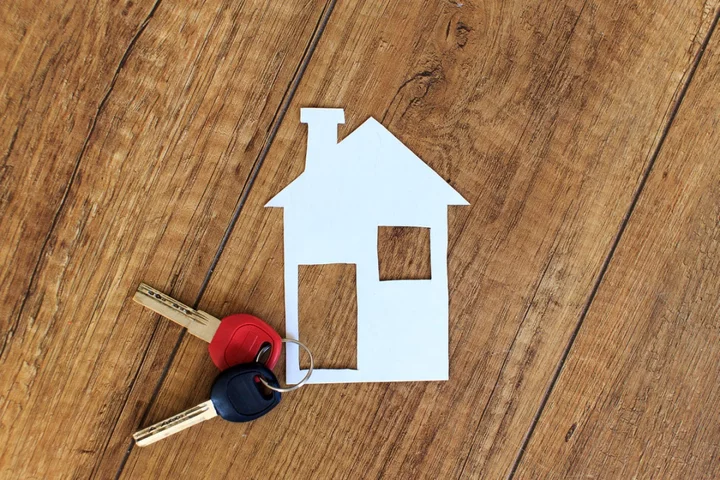
Brits reveal advice they would give their younger selves - including investing in property
Brits have revealed the advice they would give their younger selves – including investing in property as early as possible, taking more photos and not being afraid of rejection when asking someone out. A survey of 2,000 adults found 58 per cent would love nothing more than to give the younger version of themselves some good tips. Those surveyed said they would look after their physical health more, avoid wasting their time on negative people and learn from their mistakes. The top 20 list also included recommendations to save 10 per cent of your wages every month, spend more time with your parents and celebrate the little wins. But while 67 per cent would offer financial words of wisdom, 82 per cent felt positive knowing every decision they’ve made has led them to the point where they are now. And the same percentage (82 per cent) wanted to live their life with no regrets. AXA UK commissioned the study as part of its ‘Future You will thank you’ campaign which looks at how our future selves will thank us for the good choices we make today and reveals the decisions people are most thankful for. Scarlette Douglas, former A Place in The Sun host and I’m A Celebrity contestant, is taking part in the campaign discussing the forks in the road which led her to a career in television. She has contributed to an eBook revealing more of these insights from celebrities and the public. Scarlette said: “I had been performing in musicals for eight years when I made what I feel was a great decision at that point in my life, which was to move away from theatre and pursue a different career in television presenting. “I finished my last musical in 2014 and in 2015 I landed an amazing job as a presenter for A Place in The Sun – I had my first presenting role on a Channel 4 show. “I’ve now been in television for eight years and if I didn’t take a leap of faith and make that decision to leave musical theatre and pursue television, I would never be where I am now.” The study also found buying a house as soon as possible, getting married and heading off abroad were some of the things people are most grateful to their young self for. But when it came to regrets, 39 per cent had at least one big one in their life. Of those, 56 per cent said these were romantically linked, while 35 per cent had health-related regrets. Others spoke about how they wish they got to know parents and loved ones better before they passed away. Although 27 per cent had learnt from some of the regrets their parents had experienced. Architect and TV presenter George Clarke is also involved with the campaign and spoke about his first home. He said: “When I bought my first ‘grown-up’ house it was a wreck and definitely a building project. “We had to live in it while we did the work bit by bit over the course of three years – it was a major project and at the time we didn’t have a lot of money, so it was work, earn, do building work... repeat. “It was a major refurbishment and what made it even harder was our child was born during the build too. All of it was a big risk, especially a financial one. “The house looked amazing when we completed it, and although we loved it the financial pressure and the length of the build took its toll and we made the decision to sell. “We were very lucky with the sale and we were able to buy another house just a few hundred yards from the one we’d sold – that project began the journey of setting ourselves up for life.” The research also revealed that dropping a phone down the toilet, having to pay hefty vet bills and having their home flooded were the situations where people regretted not getting insurance. There was a desire among those surveyed, by OnePoll, to say yes more often, with people wanting to experience new travel and holiday destinations (46 per cent), new social activities and plans (35 per cent) and new friendships (34 per cent). Jason Fox, TV broadcaster, former UK Special Forces soldier and Royal Marines Commando, is also taking part in the initiative. He said: “When I left the marines after 20 years of service, I suffered from PTSD and had to learn to look after my mental health. “I realised I could also be useful in the civil world, by showing others that mental wellbeing is a strength, not a weakness. “When I was able to, the best decision I made was to invest in my mental health initiative and organisation ‘Rock 2 Recovery’ to support others in similar situations.” Tara Foley, AXA UK’s CEO, said: “Every decision we make impacts our future, from the biggest life choices to the smallest. “The findings show most people are pretty happy with the majority of decisions they’ve made, but they wouldn’t be averse to going back and giving their younger self a bit of guidance to influence how things turned out further down the line. “It’s encouraging that so many people say they aren’t living their life with regrets and it’s good to see a real desire to experience new things and push the boundaries, such as visiting far-flung places or trying new activities. “Making sure you’re always covered for every eventuality – whether it’s car, home, business or health insurance – means you can take on whatever life throws at you without worrying about unforeseen consequences or unexpected financial challenges.” Top 10 pieces of advice many people wish they could tell their younger self: 1) Be more confident 2) Try not to care what other people think 3) Don’t let opportunities pass you by 4) Look after your physical health more 5) Don’t waste time with negative people 6) Learn from your mistakes 7) Save 10 per cent of your wages every month 8) Eat healthily as it will pay dividends down the line 9) Go on all the holidays you can 10) Invest in property as early as you can 11) Don’t just settle for things 12) Just relax and enjoy the ride 13) Look after your mental health better 14) Spend more time with your parents 15) Celebrate the little wins 16) Take more risks 17) Don’t be afraid of rejection when asking someone out 18) Always be there for your mates 19) Take more photos 20) Be disciplined with your time Read More Brits are so fed up with emails that retail giants now send reminder letters Adults are eager to explore the world alone over the next three years, study finds Study finds more people are moving into high flood zones, increasing risk of water disasters Chris Hemsworth shares big life changes after ‘shocking’ health warning How to get rid of bedbugs: Signs and symptoms amid threat of UK invasion I have felt the shame of infertility – it’s why I started a club for women like me
2023-10-06 19:46

Novo Nordisk's Wegovy bonanza looms large in Denmark
By Maggie Fick COPENHAGEN The whirlwind success of weight-loss treatment Wegovy is providing a bonanza not just for
2023-10-05 14:52
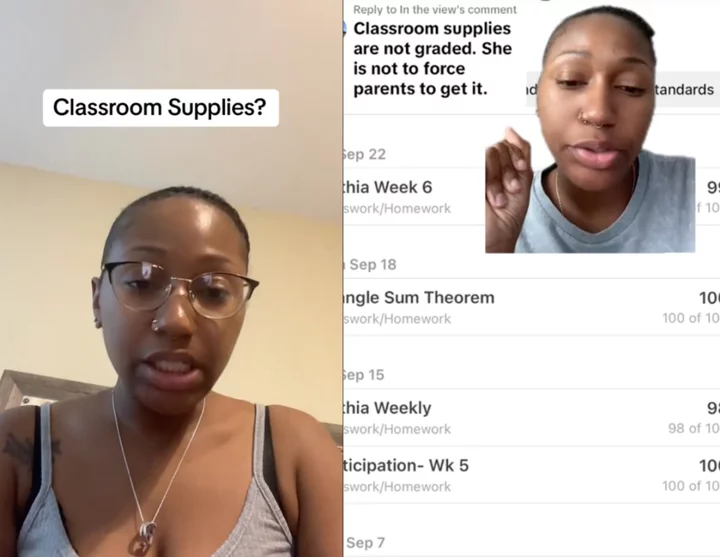
Mother sparks debate after claiming her son received a ‘zero’ grade because he didn’t have classroom supplies
A mother has sparked a debate after revealing that her son received a “zero” from his teacher because he didn’t bring in “classroom supplies”. The parent, Shanitta Busby, shared a recent video to TikTok about her 13 year old, in which she explained that he recently started at a new school. She noted that, prior to the middle schooler’s first day, she bought him “new school supplies,” since the list of supplies needed was “a little different” than ones she’d seen before, and she “wanted him to be prepared”. Busby said that while her child’s first week at school went well, he came home the second week and told her: “My teacher said we need to have classroom supplies.” She responded to her son by saying it was strange that his teacher wanted him to have certain “classroom supplies”. “I’m like: ‘That’s weird, because we got you everything on the list that you would need for the class. And you’re not going to be using any classroom supplies,’” she recalled. “And so I left it at that.” However, according to Busby, the teacher later told her son that she’d “give [him] a zero if [he] didn’t turn in the classroom supplies”. While the parent questioned why her son was being graded for having the items, she said that she still went on to get the “classroom supplies,” which included things like tissues, Clorox wipes, hand sanitiser, pencils, Expo markers and red pens. Although she gave her son these supplies to turn in to his teacher, she said that the following week, her son “still had a zero”. She explained that when she emailed the teacher about the grade, she also claimed that parents shouldn’t be responsible for “supplying” the items needed in the teacher’s classrooms. “I email the teacher and I’m like: ‘Hey, I’m kind of concerned because my student has an 83 in the class, and everything else in the class is 100s and 98s. And he still have a zero for something called classroom supplies,’” she recalled. “I was like: ‘We bought the supplies anyways, but I don’t feel like it’s the parent’s responsibility to supply your classroom.’” She also told the teacher that she didn’t “think it was appropriate to assign a grade to students based on whether or not they’ve supplied” their teacher’s classroom. According to Busby, the teacher responded to the email by saying: “I appreciate an involved parent, and I’ll update his grade today.” However, the teacher didn’t address the parent’s concerns about the grade itself existing. @shanittanicole Am I doing too much? #fyp #school ♬ original sound - Snooze ❣️ “She said nothing about the fact that we shouldn’t have to supply your classroom with supplies,” she explained. “So I emailed the principal, I might be extra, but I just wanna see what’s going on. Why do I have to buy supplies for the classroom? In the comment, she clarified that she and her husband bought the supplies that were needed for his homeroom, as he’s in middle school. She then specified that the grade he got for “classroom supplies” was for only his math class. Busby later shared a follow-up video with a screenshot of her son’s grade in the class, noting that there were two different grades for his “supplies”. While he got 90 for his “homework/classwork,” in the “supplies section”, he initially had a zero under the “participation” for “supplies”. However, his zero was then updated to a 100, giving him a 98 in the class. She then emphasised why she contacted the principal about her son’s “supplies” grade, adding: “Why are you assigning a grade for additional school supplies for the classroom? That’s what was wrong to me.” In the comments of the two videos, which have received more than 1.5m views combined, many people came to the parent’s defence, noting that some parents can’t afford all classroom supplies, so children’s grades shouldn’t be penalised for that. “Classroom supplies are not graded. She is not to force parents to get it,” one wrote, while another added: “That is so unfair!! Especially for the kids whose parents CAN’T afford groceries let alone classroom supplies!!!” “Somebody has to buy supplies and it’s not fair to the teacher. BUT they pool the supplies because everyone can’t afford them. To grade that is ridiculous,” a third commented. On the other hand, some parents acknowledged that they would get certain school supplies for their children, and defended teachers from having to buy them. @shanittanicole Replying to @In the view Graded School Supplies Part 2 #fyp #school #xybca ♬ original sound - Snooze ❣️ “I will buy anything my kids’ teachers need. I usually send $200 through a cash app per 1/4. Teachers shouldn’t have to buy either,” one wrote, while another added: “The grade I don’t agree with! As a former teacher, I spent a lot of my personal money on supplies. New teachers don’t even get a stapler.” “Teachers don’t make anywhere near enough to supply everything for classrooms, like tissues if your kid has a runny nose. Or wipes to clean messes,” a third wrote. Speaking to Insider, Busby said she’s still waiting to hear back from the principal on how the situation is being handled. She also shared her belief that the school districts should be giving supplies needed in classrooms, rather than having parents or teachers pay for it. The Independent has contacted Busby for comment. Read More Six-year-old girl with special needs found wandering busy road after school sent her home Father praised after teaching his daughters how to set expectations when dating men A Georgia woman confided in a friend about her relationship’s ‘tough times’. Four days later she was dead Man inundated with criticism after judging mum on her phone Brian Austin Green details stroke-like symptoms caused by diet: ‘I couldn’t speak’ Woman reveals how she discovered she’s allergic to water
2023-10-05 06:26

Kaiser Permanente: Over 75,000 US healthcare workers go on strike
About 40% of Kaiser Permanente's workers walked off their jobs to call for higher wages and more staff.
2023-10-05 03:26

US FDA authorizes Novavax's updated COVID shot, shares rise
By Sriparna Roy and Michael Erman (Reuters) -The U.S. Food and Drug Administration said on Tuesday it authorized an updated
2023-10-05 02:51

Brian Austin Green says he had stroke-like symptoms caused by his diet: ‘I couldn’t speak’
Brian Austin Green has revealed he suffered from stroke-like symptoms for four years that were ultimately caused by his diet. The Beverly Hills, 90210 alum, 50, recently opened up about his major health struggles - which included vertigo and ulcerative colitis - that led him to be bedridden for three months and unable to speak, read, or write. In an episode of the Sex, Lies, and Spray Tans podcast with Dancing With the Stars dancer Cheryl Burke, released on 2 October, Green revealed that it wasn’t until a “kinesiology and Eastern medicine” specialist discovered he had “internal inflammation” from his diet of gluten and dairy that he was able to take control of his health. “I spent four and a half years recovering from stroke-like symptoms without ever having had a stroke,” the Anger Management star said. “I couldn’t speak. I couldn’t read. I couldn’t write.” When asked by podcast host Burke if his “neurological” issues were a result of having vertigo - a sensation that the environment is spinning in circles - Green explained that his vertigo symptoms were just “one stage” of his health problems. “I had ulcerative colitis and then I had vertigo,” he said. According to the Mayo Clinic, ulcerative colitis is an inflammatory bowel disease that causes inflammation and ulcers in the digestive tract. “I was bedridden for like three months but both things were undiagnosable,” he continued. “Nobody could figure it out, all the specialists that I saw.” Burke asked whether his symptoms were a result of a car accident, seemingly referring to when Green and his ex-wife, Megan Fox, were struck in their vehicle by a drunk driver in December 2014. “No. It was dietary,” he replied. Despite getting an opinion from one of the top neurologists at Cedars-Sinai Medical Center in Los Angeles, and undergoing nearly 200 blood tests and two MRIs, his doctor was still unsure of what Green’s health issue could be. The actor recalled that his symptoms of “brain fog” were so bad that he once reintroduced his best friend of 25 years to his sister, who his friend had also known for more than two decades. Green shared that even reading Dr Seuss books to his children was difficult for his brain. “It was all undiagnosed by Western medicine, so I ended up having to finally find a doctor that is much more into, like, kinesiology and Eastern medicine,” he said. Once finding a specialist, the doctor told Green that his health condition was a combination of stress and consuming “gluten and dairy”, which caused “internal inflammation” in his system. These days, Green shared that he’s “fully recovered” from his stroke-like symptoms and his health has been “100 per cent” since then. Green is a father to five children. He shares son Kassius Lijah, 21, with ex-girlfriend Vanessa Marcil. The Desperate Housewives alum also shares sons Noah Shannon, 11, Bodhi Ransom, nine, and Journey River, seven, with ex-wife Fox. He and the Jennifer’s Body star were married from 2010 to 2021. In June 2022, Green welcomed his fifth child, son Zane Walker, with fiancée Sharna Burgess. Read More Brian Austin Green gets candid about how great co-parenting is with ex Megan Fox Brian Austin Green shuts down claim he’s a ‘bad father’ after defending Megan Fox over sons’ outfits Megan Fox hits back at US politician’s claim about her children’s clothes Woman reveals how she discovered she’s allergic to water More than a quarter of middle-aged women living with ‘metabolically healthy obesity’ – study Idris Elba reveals he’s been in therapy for over a year after work realisation
2023-10-05 00:51
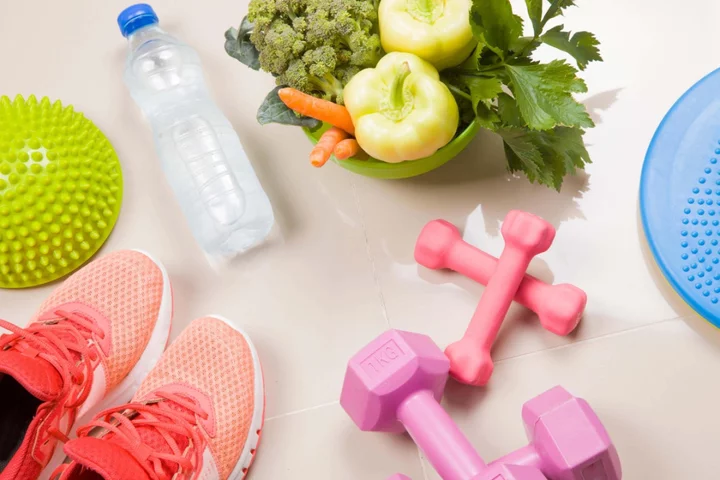
More than a quarter of middle-aged women living with ‘metabolically healthy obesity’ – study
Almost one in 10 middle-aged men and more than a quarter of middle-aged women in the UK are “fit but fat”, researchers have said, as they called for more to be done to help people reduce their weight. Academics said that there are large regional differences over levels of “metabolically healthy obesity”, which could be down to different diets or other lifestyle factors as well as ethnic and genetic differences. People who are “fit but fat” are considered to be obese by their body mass index (BMI) score but have none of the complications associated with obesity including abnormal blood sugar levels; high cholesterol; high blood pressures; type 2 diabetes or other signs of heart disease. The UK has similar levels seen in Sweden, Norway and Germany, experts said. The highest proportion of metabolically healthy obesity is observed in France and other Mediterranean countries such as Italy and Israel, experts told the the Annual Meeting of the European Association for the Study of Diabetes. There will always be people living with obesity who seem to be protected against obesity-related cardiometabolic diseases Prof Mattias Bluher One study shows that 8% of men and 27% of women in the UK aged between 40 and 50 are living with “metabolically healthy obesity”. Asked how many people in the UK are affected, Professor Matthias Bluher, of the University of Leipzig and Helmholtz Centre Munich in Germany, said: “The (UK) is very similar to situation Sweden, Norway and Germany. “There are populations in Micronesia or Asian populations where it is down to 2-5% only. “Some populations may be, despite large amounts of adipose tissue, better protected against comorbidities and Caucasian populations belong to those.” Prof Bluher said that healthy obesity is seen in a number of premenopausal women. It comes as Prof Bluher called for better weight management programmes for people who fit the profile. He pointed to previous work which suggests people who are “healthy obese” have a higher risk of coronary heart disease, cerebrovascular disease and heart failure compared to their in a normal weight range. “There will always be people living with obesity who seem to be protected against obesity-related cardiometabolic diseases,” he told the conference. “The concept that metabolically healthy obesity affected people may not benefit from weight loss strategies has been challenged by recent data. “A timely and personalised treatment of obesity should also be recommended to people living with healthier obesity.” Read More Charity boss speaks out over ‘traumatic’ encounter with royal aide Ukraine war’s heaviest fight rages in east - follow live Jonnie Peacock on Strictly Come Dancing representation: ‘It’s important to break people’s perceptions’ What you need to know about depression during menopause – as Carol Vorderman opens up Autumn pests to look out for and how to get rid of them in your home and garden
2023-10-04 16:56

Idris Elba reveals he’s been in therapy for a year due to ‘unhealthy habits’
Idris Elba has revealed that he’s been in therapy for the past year because of “unhealthy habits” affecting his personal life. The British actor, 51, recently opened up about his mental health on the Changes with Annie Macmanus podcast. Speaking on the podcast released on 2 October, Elba said that he’s been in therapy for about a year. “In my therapy I’ve been thinking a lot about changing,” he said. “It’s not because I don’t like myself or anything like that. It’s just that I have some unhealthy habits that have just really formed.” “I work in an industry that I am rewarded for those unhealthy habits,” Elba added. The Luther star admitted that he’s “a workaholic” and explained how taking on new work projects has had a negative impact on his daily life. “I’m a workaholic. I’m an absolute workaholic,” he said. “And that isn’t great for life, generally. Nothing that’s too extreme is good. Everything needs balance.” However, The Wire star acknowledged that the entertainment industry rewards “someone that can go: ‘I’m not going to see my family for six months.’ And I’m in there grinding and making a new family and then leave them.” Despite admitting that he’s a workaholic, he noted that what makes him most “relaxed” is surprisingly working. Elba, who often moonlights as a DJ, went on to share that his at-home studio only further fuels his workaholic tendencies. He continued: “I could work 10 days on a film, underwater sequences holding my breath for six minutes, and come back and sit in [the studio] and [feel relaxed], more so than sitting on the sofa with the family - which is bad right? “This is the part where I’ve got to normalise what makes me relaxed, it can’t be all work,” he added. In 2020, a study of 2,000 UK office workers found that four in 10 British adults admitted that they’re workaholics. The study showed that one in six workers frequently spends more than 11 hours a week working when they are away from the office, such as checking emails and making calls. Plus, only three per cent of workers surveyed said they leave work on time every day. In the study, some of the signs of a workaholic included never taking a lunch break, working on weekends, and always being the last one to leave the office. Ignoring family can also be a sign of working too much, as one in five adults admitted they’d take a work call or check emails while with their family. Elba is married to Canadian model Sabrina Dhowre. The two began dating in 2017 and were engaged in February 2018. They tied the knot on 26 April 2019 in Marrakesh. He is also the proud father to two children. Elba shares daughter Isan, born in January 2002, with ex-wife Kim Norgaard and son Winston, born in April 2014, with ex-girlfriend Naiyana Garth. Read More Idris Elba says ‘disgusting’ race discourse put him off James Bond role David Beckham explains why he never sought therapy after 1998 World Cup match left him ‘depressed’ Dove Cameron opens up about feeling ‘incredibly suicidal’ to destigmatise depression Having an overweight pet could cost owners over £1,000 in vets’ bills What you need to know about depression during menopause – as Carol Vorderman opens up Linda Evangelista describes relationship with Gerald Marie as a ‘MeToo marriage’
2023-10-04 00:27
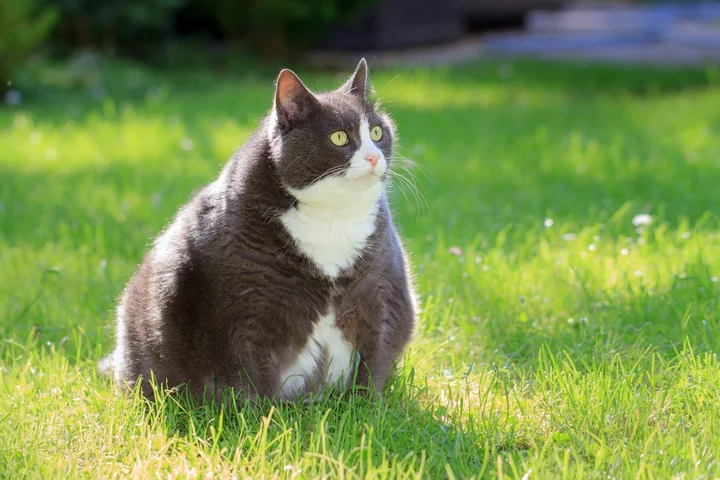
Having an overweight pet could cost owners over £1,000 in vets’ bills
Having an overweight pet could cost owners £1,500 in vets’ bills per visit, claims data has revealed. Common health problems caused by excessive weight include cruciate ligament injuries, urinary tract disease, diabetes and arthritis. Addressing cruciate ligament injuries can mean swallowing a whopping bill of £1,578.28, and urinary tract disease costs for cats are skyrocketing to a jaw-dropping £752.06. Data from pet insurer ManyPets shows, on average, pet owners are forking out £682.65 for a trip to the vets for diabetes, while arthritis costs are coming to £476.61. However, 51 per cent of cat and dog owners are already concerned about their pets’ weight, a separate poll of 2,000 pet owners found. And nearly one in five (18 per cent) with a cat or dog could encounter these bills soon as they believe their pet already is carrying more weight than it should. With almost a fifth (19 per cent) admitting they are already shelling out more to tackle their pets’ fluctuating size. The research was commissioned as part of the ManyPets ‘Why Weight?’ report and launch of its Obesity Learning Hub. Steven Mendel, chief executive and co-founder of the pet insurer, said: “We understand it can be difficult to resist rewarding pets with extra treats, and heart-breaking to say no to them when they’re asking for more food. “But, with obesity associated health problems becoming more and more prevalent, we urge pet parents to think twice to save their pets. “We’re proud to have launched our Obesity Learning Hub to offer tips and veterinary approved advice for pet parents everywhere.” The research went on to find, with the rising cost of living still looming large for many pet owners, 22 per cent have been forced to make cutbacks to their pet’s lifestyle. Almost half (49 per cent) of these are now opting for lower quality brands of food, and 37 per cent have reduced their spend on healthcare. But 88 per cent believe they would be able to recognise the signs a pet is potentially getting to an unhealthy weight, yet only 31 per cent regularly keep an eye on their pet’s weight. Moreover,39 per cent will only visit the vets in an emergency – all of which point to an increase in weight going unchecked. In a bid to help keep weight down, 76 per cent do try to keep their four-legged friends as active as possible, while 75 per cent limit the number of treats or table scraps they give out. The study, carried out via OnePoll, found of those with an overweight pet, 22 per cent feel as if their cat or dog is ‘always hungry’. While a puzzled 19 per cent scratch their heads over their pet’s weight as they don’t think they eat an excessive amount. Steven Mendel added: “While many pet owners believe it should be straightforward to spot if their cat or dog is putting on weight – it’s often easier said than done. “In most cases, gaining weight is very gradual, meaning it can be trickier to identify - especially if pets are not attending the vet regularly. “We’re hopeful that with the right course of action and identifying the signs early, longer term pet health problems can be avoided in the future.” Read More Cat owner reunited with pet Tux after emotional Lyft ride saga Dogs’ facial markings could play a role in how close they are with owners Moment cat stuck inside boat’s hull after fire is rescued by firefighters Cat owner reunited with pet Tux after leaving her in a Lyft What you need to know about depression during menopause – as Carol Vorderman opens up Linda Evangelista describes relationship with Gerald Marie as a ‘MeToo marriage’
2023-10-03 21:56
